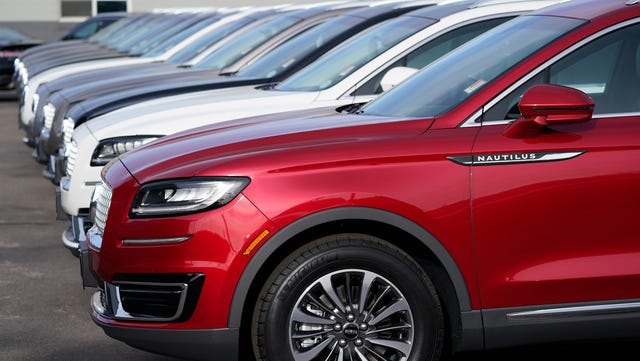People Still Buying Lots of SUVs and Crossovers, Sales Numbers Show

David Zalubowski via APCar and Driver
- Toyota, Hyundai, Kia, Subaru, and Mazda all finished January 2021 with gains, even though the auto industry overall saw a year-over-year decline last month.
- SUV and crossover lineups were largely the reason these companies did so well.
- Since sales fell off a cliff last spring, the market has been on a steady upswing, and that trend is continuing into 2021.
The auto industry’s march toward positive sales results has been unrelenting since the spring of 2020, and that momentum has continued into the new year. As a whole, total new vehicle sales are expected to have fallen 3.7 percent, according to Cox Automotive, a small decline particularly when considering there was one less selling this past January as compared to last year.
Several of the monthly reporters beat the estimated industry average, including Toyota, Hyundai, Kia, Subaru, and Mazda, all of which have their SUVs and crossovers to thank. On the other hand, both Ford and Honda saw sales fall this past month, the former as a result of fewer fleet orders and the latter due to falling car sales.
“The expected month-over-month uptick in sales pace suggests the vehicle market is starting the year on solid ground even with so much uncertainty in the economy,” Charlie Chesbrough, Cox Automotive senior economist, wrote in a note. Cox also predicted that fleet sales, a group of sales severely impacted by the pandemic, won’t recover until later this year.
For Toyota—which regained the title of world’s best-selling automaker in 2020 from Volkswagen—sales increased 0.2 percent in January, led by a 10.4 percent increase in sales in the trucks division, including SUVs and pickups. The 4Runner enjoyed a 33.1 percent increase in sales, and the Tacoma saw a 10.3 percent jump. The Corolla and Camry, some of Toyota’s biggest sellers, both endured double-digit declines in sales, in line with the trend across the industry.
Hyundai’s sales rose 1.5 percent in January as compared to last year, with SUVs and crossovers offsetting declines among the sedans. Sales of the Kona rose 19.6 percent while the Santa Fe’s sales jumped 26.6 percent. At Hyundai’s corporate sibling Kia, sales increased 10.3 percent, but that result can be largely attributed to the K5 and Seltos, which were either not on sale or had just reached dealers in January of 2020. Either way, Kia’s popular Telluride SUV had sales increase 25.8 percent this past Monday.
At Ford, a continued fall in fleet sales countered an otherwise healthy month for retail sales as the automaker saw its sales fall 8.3 percent. Retail sales, on the other hand, rose 5.5 percent as compared to last year. Sales of the Explorer were a bright spot for Ford as they rose 11.1 percent; sedan sales weighed down the overall results as the discontinued Fiesta has reached zero total sales and the discontinued Fusion fell 74 percent.
Honda also had sales fall in January, with a 9.2 percent decline. Sales of the Pilot increased by 10.8 percent, but overall, sales of trucks and SUVs fell by 2.2 percent (although accounting for the one less selling day, sales in this division increased 1.9 percent). Subaru finished the month of January with sales increasing 0.3 percent, helped along by 28.3 percent higher sales for the Crosstrek. The Outback saw a 3.6 percent increase in sales while the Forester stayed flat. On the other hand, there was a slump in sales for the Ascent, as well as the sedan lineup.
Mazda, one of the smaller monthly reporting automakers, had January sales finish 6.9 percent higher than last year. Mazda saw sales numbers improve across its lineup, including 22 percent for the Mazda 3, 5.2 percent for its most popular vehicle, the CX-5, and 53 percent for the new CX-30.
This content is created and maintained by a third party, and imported onto this page to help users provide their email addresses. You may be able to find more information about this and similar content at piano.io
